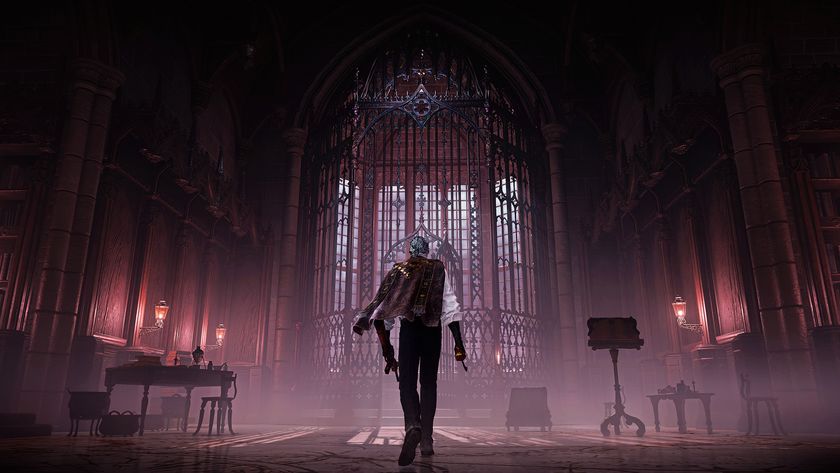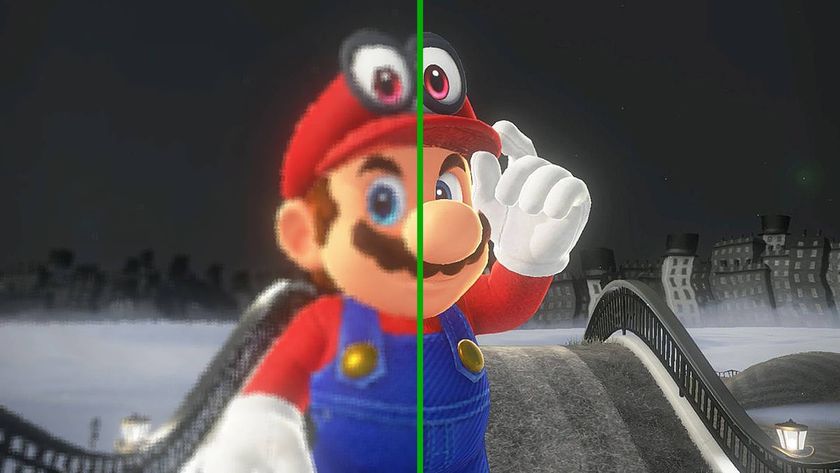John Carmack, mad scientist, leaves id Software completely to work on Oculus Rift
The virtual future might be a reality
There's a good chance you've already heard the news: industry vet John Carmack, one of the founders of id Software, is stepping back from the company he created to work as Chief Technical Officer for the Oculus Rift. Though he spent the last few months with a foot in both doors, he's officially moved on from id to help foster the future of virtual reality. In other words, the father of first-person gaming is now going to help bring true first-person gaming to its logical conclusion.
What does it mean when someone calls John Carmack an industry visionary or technical wunderkind (as you've likely heard many times over today)? Well, he created "adaptive tile refresh" for Commander Keen and "raycasting" for games like Wolfenstein 3D. He invented things like "binary space partitioning" and "surface caching" and "MegaTexture technology." Don't know what any of that is? Neither does anyone else, but it works, and he made it. He's a robot. He's a machine. He once broke into his high school to steal an Apple II, got caught, and was diagnosed as a sociopath. Seriously, a psychiatrist said that he had "no empathy for other human beings." That's a thing that actually happened. And then he went to juvie for a year.

He cracked the code, taking first-person from concept to execution. And now? He's sitting at a computer, figuring out how to solve the last of virtual reality's problems. Insert a .gif of a head exploding. That's your head--or, at least, it should be.
We've spent the last week messing with the Oculus Rift, putting it through its paces and dizzying ourselves with the demos that have been released. It's an experience as remarkable as it is difficult to describe. And lest it not be said, while the Oculus is cool and all, it still has many areas that could use the Carmack touch.
Despite being high-res, the device still has a "screen door effect," where it looks like you're viewing the world through, well, a screen door. When we met with the creators at E3, they more or less threw up their hands when it came to finding a solution; it's something that virtual reality would simply have to live with for the time being. We doubt John Carmack--who also builds rockets in his spare time--is going to settle for that. There's also the issue of making it work consistently with people who have glasses (AKA, you, most likely). There are multiple lenses and you can technically use your glasses, but a more tailored solution would be appreciated for the nearsighted masses.

And that's before we even get to the software side. There are hundreds of demos available for the Rift and a handful of interesting full games, but so far few function as anything more than tech demos. Someone needs to make original games, from scratch, to prove how virtual reality can work for real, "hardcore" games. Someone needs to crack the code. Who better than John Carmack?
John Carmack could end up being the Steve Jobs of virtual reality. And if he's confident enough in the technology to leave id Software, it's safe to say that it might be worth paying attention to. He's a mad scientist that will stop at nothing to achieve success, and in this case success means you putting on goggles and experiencing the most realistic video games you've ever imagined.
Sign up to the 12DOVE Newsletter
Weekly digests, tales from the communities you love, and more
The future is in good hands.
A version of this article originally appeared on this site on August 7, 2013.
Hollander Cooper was the Lead Features Editor of 12DOVE between 2011 and 2014. After that lengthy stint managing GR's editorial calendar he moved behind the curtain and into the video game industry itself, working as social media manager for EA and as a communications lead at Riot Games. Hollander is currently stationed at Apple as an organic social lead for the App Store and Apple Arcade.












